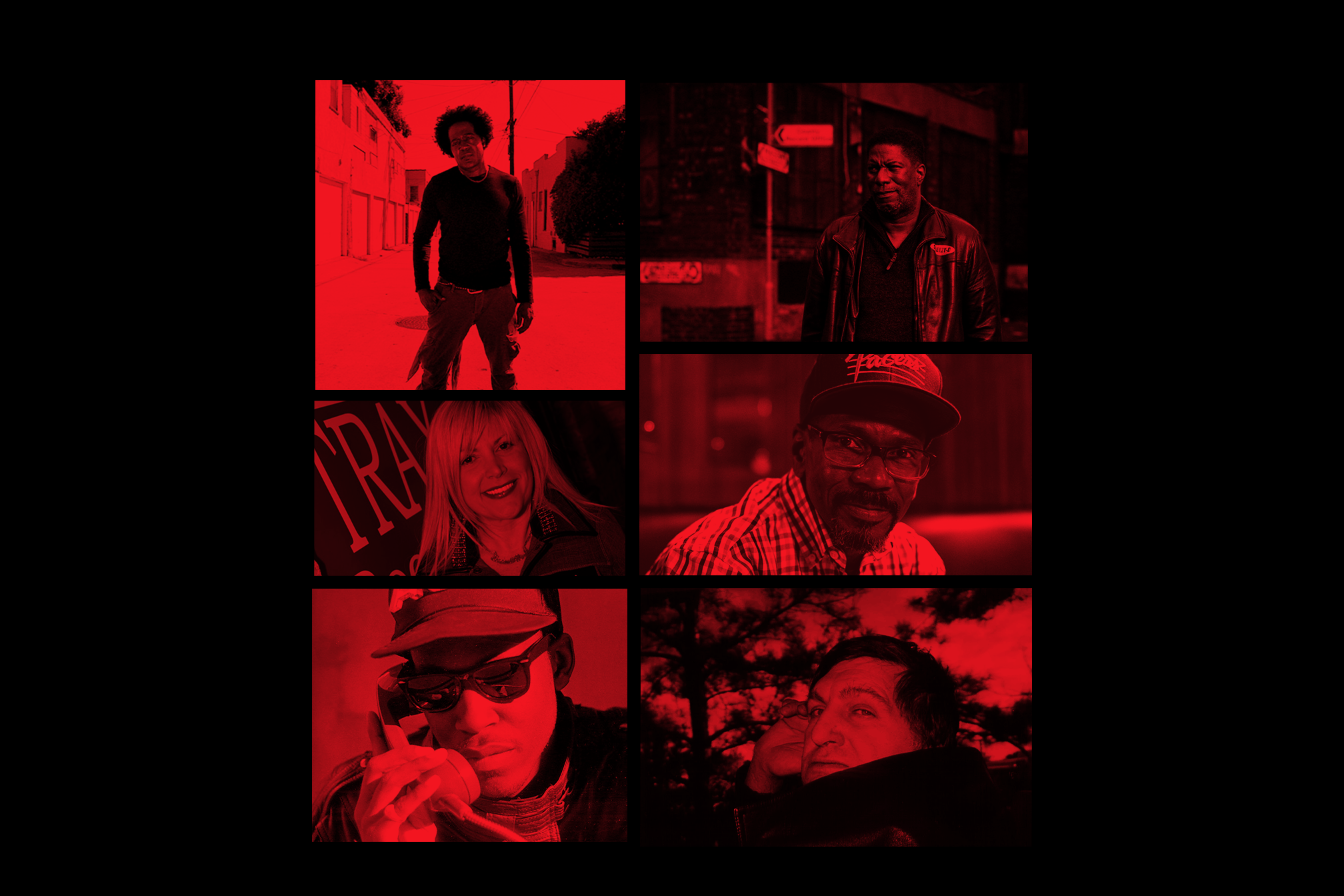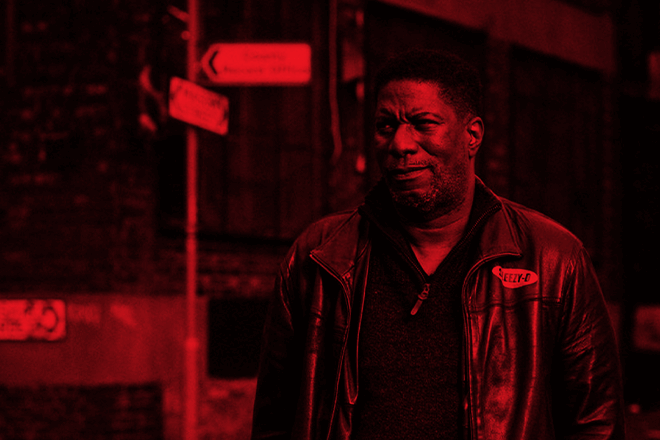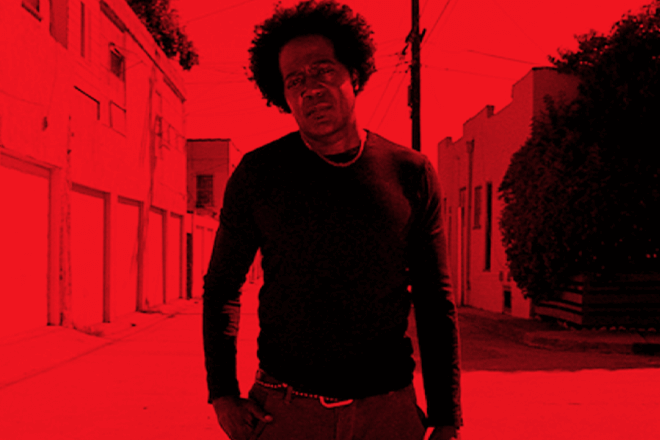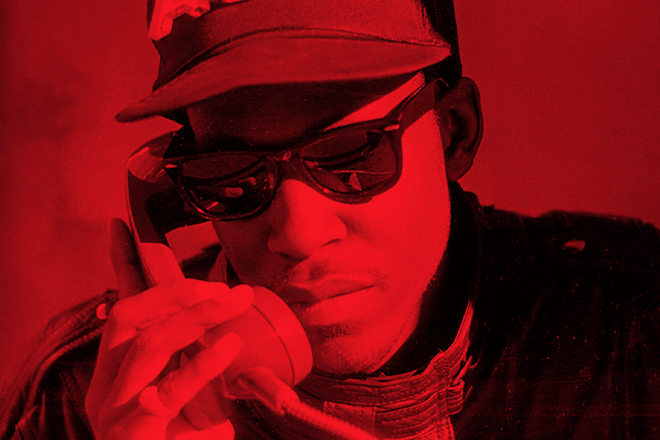 Features
Features
Inside Trax Records: Why Chicago's house originators are fighting for reparations
Decades on from changing the world, Chicago's pioneers are still pursuing payment and the rights to the music they created
On April 8, 2020, Larry Sherman died. As the co-founder of Chicago’s seminal Trax Records, he impacted the history of dance music, and many have grieved for his loss. On the underside, Sherman’s infamously poor business practices (including accusations of not paying artists their proper royalties, and releasing music without their awareness to the fact) bear a tragic legacy, and his life and work left many feeling aggrieved.
Chicago’s fabled Black house heroes like Adonis, Marshall Jefferson, DJ Pierre and Larry Heard are embittered about not being properly compensated for their work during their illustrious careers. Sherman – a white man from South Chicago – leaves a black eye regarding royalties and residual payments for the genre’s foundational songs, including Adonis’ ‘No Way Back’, Mr. Fingers’ ‘Can You Feel It / Washing Machine’, Robert Owens’ ‘Bring Down the Walls’, and numerous others. Immediate reparations are necessary more than 30 years after these men changed the world.
Sherman originally co-founded Trax in 1984 alongside two Black musicians in Vince Lawrence and Jesse Saunders, who co-wrote what is widely credited as the first ever house music record, ‘On and On’, the year previously. Despite their pioneering contribution to the genre and creation of Trax, neither Saunders nor Lawrence remained affiliated as label owners for long or profited much directly from its legacy. “We were going to split the profits… and that didn’t really work out that way,” said Lawrence in an interview published in 2010.
Sherman and Trax Records are far from alone in this practice of taking advantage of artists. Countless similar stories of dodgy label dealings ring through the past and present of the music industry, and structural racism built into society means it is almost always white people who take up positions of power which enable them to exploit artists, who are frequently Black. Though history is irreparably broken, the future, though likely tarnished, is still fixable. And in the case of Trax Records, restitution is now being sought.

Twice in less than 100 days after Sherman's passing, three Black artists with eight releases via Trax at the height of Chicago's house heyday have attempted to recoup funds they have been owed from the label for nearly four decades. According to Adonis, previously mentioned 1986 house hit ‘No Way Back’ is owed 34 years of back royalty payments. Larry Heard and Robert Owens – who recorded together as Fingers Inc. alongside Ron Wilson – claim their tracks from the same era are similarly unpaid. Adonis, via DJ Steve Morgan, has set up a crowdfunding page that has raised just south of $15,000. As for Heard and Owens, they're suing Trax Records, seeking $150,000 in damages for each work, a minimum of $1 million.
Contextualizing Trax Records and its payment issues is essential. Therefore, it's best to understand the era they come from. In 1986, Chicago was emerging as a hotbed of a significant American post-disco wave of dance music. Ron Hardy was at the height of his dancefloor-controlling powers at the Music Box, which had arguably emerged as the most vital nightclub in the world for sourcing house music's rise.
Benji Espinoza is currently the owner of DJ International Records (Trax Records' 80s era ‘competition’/contemporary) and recalls that in 1986, "it was a scene. I would walk into a record store, and there would be journalists digging for house records they'd heard in the club the night before. Writers from The Face Magazine, Melody Maker, NME, and Record Mirror in the UK, and American pubs like Spin Magazine, Rolling Stone, and Playboy!"
Read this next: 30 of the best Chicago house tracks
"Screamin'" Rachael Cain is a Chicago native with a few years spent in Manhattan during the ‘Club Kids’ era. Cain is a recording artist herself with notable releases such as ‘Fantasy’ and ‘Fun With Bad Boys’. She spent a good deal of time overseas carrying forth the flag of Chicago and house music in Europe. Cain is also Sherman's ex-wife, the current owner of the Trax Records trademark, and has been the President of Trax Records since 1998.
Regarding the process during the 80s that allowed for house records to be discovered and produced so quickly and (relatively) cheaply, she noted that "[Trax wasn't] a major label, but we did have some advantages. Because Trax was based out of a record pressing plant (Precision Records Labs), we could take a hit record from the studio to the lathe, and then take a copy to be tested by a DJ like Ron Hardy or Frankie Knuckles later that night. By morning, we could have that record out of the door!"
"It was a way to make some fast money, but it was also an art form, a mix of the old Philly urban music with a new technology of synthesizers and drum machines," Larry Sherman told the Chicago Tribune during a 1997 interview about house music. Sherman’s record presses were the cheapest in Chicago. Having access to a mass-scale pressing machine, tons of recyclable vinyl from records left over from the disco era, and thus, the ability to charge cents on the dollar to mass-produce the hottest underground singles in the world made his role ultra-important. Benji Espinoza continues, "Larry would press a record for 30 cents and re-sell it for three dollars to a distributor. He'd make $2.70 a record and ship probably 1,000 or 2,000 copies of a single at a time."

Interviews conducted for this story with artists, producers, and record advance men familiar with Trax’s practices during this era break down Trax’s practices as follows: Sherman would sometimes sign one time agreements for artists, allowing for a one-time payment for an agreed-upon amount of money, which ranged anywhere from $1,000-$5,000. He'd likely be able to pay an artist their fee after a few pressings of their single or longer-play release. All other proceeds would go directly back to Sherman and the label.
Consider then that eight songs are being legally contested, at-present, by Fingers Inc. members Larry Heard and Robert Owens. The money likely required to cover payment to the artists for these tracks could be recouped with ten-to-twenty pressings (the number of records made in each pressing would vary according to demand). Given that these songs were the hottest underground-to-mainstream songs in the world, it stands to reason that they were pressed much more than twenty times. Therefore, the gap between Sherman/Trax's revenue and the artist's royalty is undetermined and maybe astonishingly wide.
White Knight has nearly 40 years of production experience, including beloved house classics like ‘Yo Baby Yo’. He offers a story of how Trax would occasionally do business in regards to a song gaining traction in the clubs. It illustrates how bizarre accounting and fuzzy math allowed Sherman to take advantage of rapidly ascending house music.
"If you had a hit song in the club, there would be demand in the retail stores for the vinyl. Naively, you'd run to the studio, grab the masters, then head down to Precision Record Labs, and the Trax office. You'd say, 'Hey Larry. I need 500 copies of this song pressed because [store X] wants a pre-order. Larry would say, 'bring me $200, I'll take care of it."
Marshall Jefferson corroborates this story. In 1986, his song ‘Move Your Body’ was, like many of Trax's early releases, a Music Box favorite. At the time, Marshall was producing and recording under the moniker of Virgo. But like many parts of Jefferson's life in and around Trax Records, this would soon take a radical turn.

"I gave Larry Sherman $1500 to make 1000 copies of 'Move Your Body’, even though I hadn't been paid for the first set of tracks he pressed and sold that I had produced. Once I realized how big 'Move Your Body' was getting in the clubs, I decided to make an EP, and asked for 3,000 more records for a 'Virgo' EP for Trax Records," Jefferson recalls. "Larry wasn't too excited about the record, which we made in September 1985, and didn't come out for Trax until six months later."
‘Move Your Body’'s original release came on a European pressing with a newly produced, 24-track version of the song for the previously mentioned DJ International Records. Regarding this move, Jefferson notes that he wanted cash up-front for a deal, which he says Sherman had refused to do. DJ International, Jefferson says, obliged his request.
"The difference between the Trax version and the DJ International one is that [on the latter] nobody's singing the background properly,” Jefferson says, referring to the vocal performances on the track involving much more extemporaneous freestyling. “Everybody's showing off,” says Jefferson, because during the recording, “We had the UK journalists and photographers there taking notes and snapping pictures." He remembers that those same journalists and photographers were later, after seeing the recording of the "house music anthem”, being taken on a tour of Chicago's house clubs by Larry Sherman. The cassette bootleg of ‘Move Your Body’ that Jefferson himself had given to DJs, instead of the delayed vinyl release, was being played to great response everywhere.
Marshall Jefferson says he ultimately never signed a physical contract for ‘Move Your Body’ in 1986. Upon hearing the song that he had masters for tearing up DJ sets, Sherman released ‘Move Your Body’ by "Marshall Jefferson", without an official contract. "I always wanted to be ‘Virgo’, but Larry Sherman changed the artist on 'Move Your Body' from 'On The House’ (the collaboration between Jefferson (as Virgo), plus Curtis McClain, Rudy Forbes, and Thomas Carr) to 'Marshall Jefferson’." "I still don't know why Larry did that," Jefferson continues. "Possibly, Larry wanted fewer people coming at him for a possible lawsuit, so he made the swap."
Watch this next: My City: Chicago with Derrick Carter
Trax Records, via Rachael Cain, claim differently, insisting that "there is a separate signed contract for ‘Move Your Body’." Cain continues to state that Sherman told her and others that when Marshall first sold ‘Move Your Body’ to Trax, Jefferson's signature was the only signature on the contract. They also say that Sherman later signed McClain and Forbes to reflect their writer's shares and participation. Still, it was too late as the vinyl had already gone out with only the Marshall Jefferson name. Trax Records entered into a settlement agreement last year with Marshall Jefferson concerning his music publishing catalog with the label.
Between allowing DJ International to press uncontracted singles of ‘Move Your Body’, and Sherman's unexpected Trax release, the official rights for the two original versions of ‘Move Your Body’ have never been sorted according to Jefferson. Insofar as all releases of ‘Move Your Body’ that bears the name of Marshall Jefferson, but are not from either Trax or DJ International, Jefferson claims that he has re-played and re-recorded the song each time.

Names like DJ Pierre can be added to the likes of Marshall Jefferson when thinking of Chicago-born house music superstars who eventually distanced themselves from the city. Though house music broke massively from Chicago, by 1990, Pierre had relocated to New York City, while Jefferson moved to London. Upon their departure from Chicago, their career fortunes drastically improved.
"I moved to New York City because the business wasn't right in Chicago anymore," DJ Pierre says. "I signed a deal to remix and produce for Jive Records, and I left.” In 1987, Pierre (alongside Herbert Jackson and Spanky, as Phuture) released ‘Acid Tracks’ on Trax Records. It's the first "acid house" track, significant for its use of the Roland TB-303 synthesizer. Impressively, upon leaving Chicago, Pierre's career soared as he joined Strictly Rhythm Records as an artist. Alongside Todd Terry, Armand Van Helden, Reel 2 Real, Ultra Naté, Josh Wink, and others, he was able to be appropriately compensated, as a solo artist and remixer, for his contributions to the underground-to-indie-to-mainstream explosion of house music.
Read this next: New York in 1984 was the time, and the place dance music became a culture
“I was a young person. I didn’t understand the game. People were telling me ‘Larry Sherman’s a criminal!’ He owned my record, was releasing it all over the world, and I never had an official contract,” says Adonis, reflecting on his career and the release of ‘No Way Back’ in 1986. Adonis still being relevant enough to warrant significant public support for his cause through the recent crowdfunder does not mirror many of his house music compatriots in the Windy City, though. “I’ve had friends of mine in Chicago get heartbroken because they’ve never been paid. They get heartbroken, they sell their instruments, their equipment, their turntables, and they leave music behind,” Adonis states about the damaging impact improper payment has had on aspiring artists. “But that’s not me. I’m a stronger kind of guy,” he adds with a bold tone in his voice.
He continues that many have told him that the music industry is overcrowded with stories of unpaid royalties and that he should move past his grievances with Trax. “I don’t care what people tell me to do. I know what’s right. I want to own my music so I can control my own deals and keep Trax Records out of my pockets. They’ve been there long enough,” Adonis states defiantly.

From the aforementioned Chicago Tribune interview interview, Sherman gives a damning overview of his business practices. "Being a good businessman, you don't say, `I think you're underestimating your material's worth. Here are a few thousand dollars more.' They'd sign away the rights to a song for a few hundred dollars, later it would become a big hit, and they'd come running back, `Where's my money?'". Ideally, this should be the end of Trax’s side of the story. Here, Larry Sherman has noted the fly in his ointment.
That said, hearing Trax’s account of this era is essential to provide an even and honest understanding of how the label’s artists have gone unpaid for 34 years. When speaking to the validity of Sherman’s quote, Rachael Cain replies: "Many of the songs were sold for thousands of dollars as the contracts reflect. Larry liked to fabricate and make everything appear larger than life. He enjoyed playing the mogul/villain. But many of the artists had a soft spot for Larry. And Larry definitely had a soft spot. He helped out a lot of the artists and was one of the few sources for production, vinyl pressing, distribution, and, most of all, cash."
Cain further says, in a lamenting tone regarding Sherman, Trax, and the era wherein Chicago house indelibly impacted the history of dance music, that,"I think of both Rocky Jones, the original owner of DJ International Records, and Larry as the gang that couldn't shoot straight. They were far from being mafiosos like their industry counterparts.” She continues: “They sat on a goldmine with no idea how to properly develop as house music grew into an international phenomenon.” The artists who went unpaid are unlikely to find this account of business naivety sympathetic.
In time, history shows that business negligence turned back on Sherman and Trax. In 1991, as both Rachael Cain and the Chicago Tribune state, Trax Records declared bankruptcy when vinyl distributors that owed Sherman and the label $4.5 million went out of business. By 1997, Trax had returned promising a ‘Chicago Trax: Ultimate House Collection’, 3-CD box set, plus many new releases. To the Tribune, Larry Sherman estimated that 150,000 pre-orders were made of the box set alone.
Legal representatives for Trax Records note that this now vaunted collection was licensed, before release, to Cleopatra Records for an advance of $68,000. In regards to this, Rachael Cain says "Larry was motivated by the same rationale as his artists: Take whatever you can upfront as you probably will never see another dime in royalties."
However, by 2002, the restarted Trax had run into financial issues and entered into a joint venture for Trax's master recordings and publishing rights to noted entertainment lawyer Edmund Glinert's Canada-based Casablanca Media Publishing. Casablanca was also appointed the worldwide administrator of the existing Trax recording and publishing catalog. As the administrator of Trax's recordings, Casablanca promised to loan the Shermans (Larry and Rachael) $100,000, with scheduled monthly repayments deducted from the $20,000 advanced each month for operating Trax as a company releasing new music. Casablanca would also recover the advances from sales of recordings released by the joint venture, while Trax would receive earnings from all non-advanced sales.
By 2006, Larry Sherman and Rachel Cain were sued by Casablanca Media to dissolve the Casablanca Trax partnership. Through a court order, Casablanca acquired all the Trax publishing and master recording assets in a forced UCC (Uniform Commercial Code) sale without accounting to Trax or its artists.
In 2007, Casablanca licensed the master recordings to Demon Music Group, now a wholly-owned subsidiary of BBC Studios. In an on the record email statement, Emma Burch, Demon Music's Acting Manager of Communications confirms: "Demon Music Group acquired the Trax catalog under license from Casablanca Trax in 2007 and still retain the rights."
Trax Records' legal representatives note that the label, Rachael Cain, and Larry Sherman reversed the UCC Sale in 2008, but the Demon License Agreement remained. Trax Records has never received any royalties from either Demon Music Group or Casablanca Records, even though Demon continues to distribute Trax's master recordings.

To aid in solving this issue, Larry Sherman and Rachael Cain retained Rights Incorporated, a London-based rights management company. Greg Roselli, Managing Director of Rights Incorporated and a one-time partner of the legendary music attorney Jay B. Ross, said: "JB was always on the side of the artist going back to the blues. Jay brought the blues back to Chicago, and we intend to bring the music back to Trax Records, to Chicago and back to the founding godfathers of house music."
Even deeper, in regards to the monies owed to artists, Roselli breaks down hard facts and figures regarding royalty expectations. "Trax Records contracts were made in the late 1980s and early 90s. The average record royalty then was between 18% and 20%, which was the average Trax royalty rate. Then came the internet. YouTube pays creators about 0.00068 cents per stream of music. This means a track streamed one million times would earn the artist on a 20% royalty $137.00. The track would need to be streamed over 250 million times to earn the minimum wage in the United States. The real problem is an industry problem."
Read this next: "Terrifying" figures show how many streams an artist needs to earn minimum wage
Roselli makes a clear statement of Trax's purpose. "Trax Records' plan is two-fold: Trax will bring an action against all appropriate parties to collect the outstanding royalties due to Trax artists. Trax will enter into new relationships with its artist to reflect the value of the music within the financial landscape created by digital distribution."
Any amends Trax is able to make financially will not be able to cover the human tolls of its former operations. San Francisco-based DJ/producer Chrissy worked for years in Chicago as the owner of the indie/underground dance labels The Nite Owl Diner, Cool Ranch, and Loose Squares. His perspective on the current issues related to releasing music from frequently Black artists in Chicago is painful, yet necessary, to consider.
"Over the years, a lot of labels owned by white people have stolen from BIPOC. Racism exists throughout the music industry, but in Chicago, it's particularly intense," Chrissy begins. "Many BIPOC have been dispossessed of their music by wealthy white men, and it's caused a lot of artists serious financial pain, and made others not even want to release their music to the wider world. Larry Sherman and Trax Records poisoned the well, and helped create an environment where people do not feel safe putting a record out with anybody."
Chrissy adds: "I've met artists who didn't even want to release their music commercially because they'd heard so many stories about shady labels in Chicago. They'd say, 'Nobody's going to pay me for this anyway, so I might as well just sell it on CD-R to my friends.' As a result, there are many great tracks that people outside of Chicago will never get to hear."

In an intriguing twist, current Trax Records President Rachael Cain has noted that she intends to join in as a plaintiff in the Federal Court suit filed by Larry Heard and Robert Owens. To Mixmag, she states via email:
"We are doing the best we can to rectify the past, and we hope to make things right going forward for the classic artists. Years ago, I formed a new company when we lost control of everything, including all my music, in the UCC sale. Presently we have a lot of happy new artists that I'm proud of, and I've just dropped my new album ‘ACIDIC’. We are going back to the future by producing vinyl as we did in the beginning. I hope to make things right going forward for the classic artists. It's my greatest wish that we can all be family again.
"Even though Larry and I had many differences, I wish he was here to speak for himself. People forget if other labels were interested or willing to pay for this music, these artists would not have come back to Trax time and time again. Larry deserves credit for building a legendary brand by believing in what was a new radical sound."
Again, the artists whose works are at the crux of nearly four decades of legal and fiscal handwringing tend to think differently.
On the matter of the best solution to this issue, Marshall Jefferson and DJ Adonis – two passionate artists, who Jefferson notes argue all of the time on Facebook about all sorts of things – reach a semblance of agreement. When it's regarding resolving a matter that can repair a historical fracturing of trust between people and races that can showcase Black lives mattering, it's crucial to regard the words with great reverence.
"The artists want our music back. There are so many interpretations of who has what rights, but at the end of the day, we all, all of us who worked with Trax, want our music back," Marshall Jefferson says with a note of weariness in his voice. "Ultimately, in my career, I've probably never signed a record deal that paid me what I felt I was worth. I'm a producer and songwriter. I always tell the artists I work with to handle their business and go get paid." There's a level of humility there that feels like the hangover of a career couched in what is, instead of what was, and what could've been.
Adonis adds an exhausted endnote. "I believe in paying people, and some people don't. The system is corrupt. I have documentation going back to 1987, where I'm asking Trax to stop selling my stuff. The most frustrating thing is that even if I figure out how the system works to get paid, I don't feel like it will work in my favor. I've had my copyrights abused for 30 years. I'm tired of being ripped off."
Marcus K. Dowling is a freelance journalist, follow him on Twitter
Read this next: Get the best of Mixmag direct to your Facebook DMs


